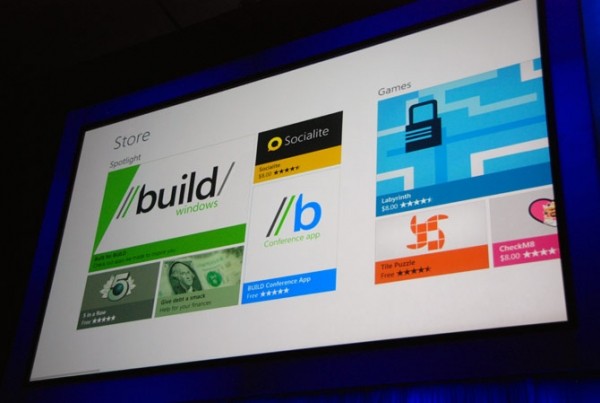Microsoft has all but confirmed that the Windows Store will be the only place to get Metro-style apps for Windows 8. The company says a centralized distribution will allow better discoverability, easier enforcement of software trials, and the facilitation of in-app purchases. Much like Apple's App Store or its own Windows Phone Marketplace, Microsoft would get a 30% cut of every sale through the Windows Store and will take it upon itself to test each submitted application.
That should give end users a one-stop location for software that they can trust but it's a departure of how things have traditionally worked on the platform. For what it's worth, traditional desktop applications on Windows 8 will continue to be available through the usual channels, such as the developer's website, a downloads portal, physical media and so on. In addition, the Windows Store will also have a "free listing service" for non-Metro Windows apps.

Developers would pay a nominal yearly fee to upload Metro apps to the Windows Store, including trial versions of their software. Microsoft will be offering a 5 PC license activation for customers who purchase applications from its store.
Enterprise customers and developers will be able to side-load Metro apps (i.e. download and install independently of the Windows Store) for testing purposes or deploying across many computers.
Microsoft hasn't officially disclosed these terms but it accidentally revealed them when its "Primer for current Windows developers" went live. That online document has since been updated to remove the revenue share structure of the Windows Store, and though it indicated that all details were preliminary and subject to change, it suggests Microsoft will be treating distribution of Metro apps the same way it treats Windows Phone 7 apps for mobile devices.